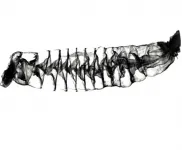Urgent need for anti-smoking campaigns to continue after pregnancy
Curtin University research has found quit support for smoking mothers should continue even after their first babies are born
2021-07-21
(Press-News.org) Curtin University research has found quit support for smoking mothers should continue even after their first babies are born, given that many of those women will become pregnant again, and that quitting can substantially reduce the risk of future preterm births.
The longitudinal study examined the records and histories across 23 years, of 63,540 Australian women with more than one child, who smoked during their first pregnancy.
Lead researcher, Professor Gavin Pereira form Curtin's School of Population Health said more than one third of women who smoked during pregnancy were able to stop smoking for their next pregnancy.
"Our research found that for more than 30 percent of smoking mothers-to-be, quitting for their next pregnancies was achievable, and importantly could reduce the risk of early birth in subsequent pregnancy by as much as 26 per cent," Professor Pereira said.
"While the benefit of quitting in reducing the harm to unborn babies is well established, less well understood was the prevalence of maintaining the quit message at the next pregnancy and the associated risk of pre-term birth. This is what our research was looking to address.
"What is clear from the study, is that maintaining quit messages and support for women who smoked during pregnancy, even after birth can have a significantly positive outcome for both them and their subsequent babies."
Professor Pereira said he was concerned about the number of women who reportedly smoked during pregnancy.
"According to the latest figures from the Australian Institute of Health and Welfare, 75% of smokers continue to smoke after 20 weeks, after finding out that they are pregnant," Professor Pereira said.
"The second trimester is vital to an unborn babies' growth and formation - organs continue to develop, and the liver, pancreas and kidneys all start to function. Babies also begin to hear sounds, such as the mother's heartbeat.
"Smoking during this crucial time cuts oxygen to the unborn baby and exposes them to a cocktail of chemicals including those that cause cancer. This could delay growth and development, increase the risk of cleft palate and change the baby's brain and lungs."
While the research has shown the need for continuing anti-smoking campaigns for those who chose to smoke during their first pregnancies, Professor Pereira has urged those considering having a family, those already pregnant, or who have recently given birth to not smoke at all.
"Among mothers who smoked in their first pregnancy, the risk of having a preterm birth at their second pregnancy was 26% lower than those who continued to smoke."
"Despite smoking during a first pregnancy, woman can turn this around for their next pregnancy to reduce complications to their unborn. Quitting is achievable and is always the safest option."
INFORMATION:
ELSE PRESS RELEASES FROM THIS DATE:
2021-07-21
The Xerces blue butterfly was last seen flapping its iridescent periwinkle wings in San Francisco in the early 1940s. It's generally accepted to be extinct, the first American insect species destroyed by urban development, but there are lingering questions about whether it was really a species to begin with, or just a sub-population of another common butterfly. In a new study in Biology Letters, researchers analyzed the DNA of a 93-year-old Xerces blue specimen in museum collections, and they found that its DNA is unique enough to merit being considered a species. The study confirms that yes, the Xerces blue really ...
2021-07-21
Sophia Antipolis, 21 July 2021: A study of more than 18 million pregnancies has shown a strong and graded relationship between women's heart health and pregnancy outcomes. The research is published today in the European Journal of Preventive Cardiology, a journal of the European Society of Cardiology (ESC).1
The researchers examined the presence of four risk factors for cardiovascular disease in women prior to pregnancy: unhealthy body weight, smoking, hypertension and diabetes. The likelihood of key pregnancy complications - maternal intensive care unit (ICU) admission, preterm birth, low birthweight and foetal death - rose incrementally with the number of pre-pregnancy cardiovascular risk factors.
"Individual cardiovascular risk factors, such as obesity and hypertension, present ...
2021-07-21
Any life identified on planets orbiting white dwarf stars almost certainly evolved after the star's death, says a new study led by the University of Warwick that reveals the consequences of the intense and furious stellar winds that will batter a planet as its star is dying. The research is published in Monthly Notices of the Royal Astronomical Society, and lead author Dr Dimitri Veras will present it today (21 July) at the online National Astronomy Meeting (NAM 2021).
The research provides new insight for astronomers searching for signs of life around these dead stars by examining the impact that their ...
2021-07-21
Durham, Toronto and Princeton Universities have teamed up with NASA and the Canadian Space Agency to build a new kind of astronomical telescope. SuperBIT flies above 99.5% of the Earth's atmosphere, carried by a helium balloon the size of a football stadium. The telescope will make its operational debut next April and when deployed should obtain high-resolution images rivalling those of the Hubble Space Telescope. Mohamed Shaaban, a PhD student at the University of Toronto, will describe SuperBIT in his talk today (Wednesday 21 July) at the online RAS National Astronomy Meeting (NAM 2021).
Light from a distant galaxy can travel for billions of years to reach our telescopes. In the final ...
2021-07-21
CHICAGO --- A woman's heart health before she becomes pregnant is strongly related to her likelihood of experiencing a complication during her pregnancy or labor, reports a new Northwestern Medicine study.
The study examined the presence of four cardiovascular risk factors in women before they became pregnant: smoking, unhealthy body weight, hypertension and diabetes. With the presence of each additional risk factor, the likelihood that the woman would experience an adverse pregnancy outcome got increasingly higher. Those adverse outcomes include maternal intensive care unit (ICU) admission, preterm birth, low birthweight and fetal ...
2021-07-21
Contrary to what popular media portrays, we actually don't know much about what sharks eat. Even less is known about how they digest their food, and the role they play in the larger ocean ecosystem.
For more than a century, researchers have relied on flat sketches of sharks' digestive systems to discern how they function -- and how what they eat and excrete impacts other species in the ocean. Now, researchers have produced a series of high-resolution, 3D scans of intestines from nearly three dozen shark species that will advance the understanding of how sharks eat and digest their food.
"It's high time ...
2021-07-21
Being more physically active and spending fewer hours per day sitting watching TV is linked to a substantially lower risk of developing obstructive sleep apnoea (OSA), according to new research published in the European Respiratory Journal [1]. It is the first study to simultaneously evaluate physical activity and sedentary behaviour in relation to OSA risk.
OSA is a condition where breathing stops and starts many times during sleep. It reduces oxygen levels in the blood and common symptoms include snoring, disrupted sleep and feeling excessively tired. ...
2021-07-21
Study offers first global estimates of the number of children who experienced the death of a parent, grandparent, or primary caregiver from COVID-19.
Researchers estimated figures based on COVID-19 mortality data from March 2020 through April 2021, and national fertility statistics for 21 countries, and extrapolated findings to produce global estimates.
Findings suggest 1 million children have lost a parent, 1.1 million have lost a parent or custodial grandparent, and more than 1.5 million have lost a parent, custodial grandparent, or other secondary familial caregiver from COVID-19.
Authors call for urgent investments in services to support children who have lost their parents and caregivers.
An estimated ...
2021-07-21
New research published in Anaesthesia (a journal of the Association of Anaesthetists) by researchers from the University of Bristol can help to improve the efficiency of surgery and help tackle the growing backlog of surgery caused by the COVID-19 pandemic. During the pandemic, the number of patients waiting for routine surgery in the UK has almost doubled with more than 5.3 million people awaiting surgery including more than 300,000 waiting more than a year.
A contributory factor is that COVID-19 precautions have led to many operating theatres working at 75-50% of normal working efficiency. Staff working in operating theatres have been required to take special precautions at the start and end of operations to allow viral particles ...
2021-07-21
More than 1.5 million children around the world are estimated to have lost at least one parent, custodial grandparent, or grandparent who lived with them due to death related to COVID-19 during the first 14 months of the pandemic, according to a study published today in The Lancet. The study highlights orphanhood as an urgent and overlooked consequence of the pandemic and emphasizes that providing evidence-based psychosocial and economic support to children who have lost a caregiver must be a key part of responding to the pandemic.
The analysis used mortality and fertility data to model rates of COVID-19-associated orphanhood (death of one or both parents) and deaths of custodial and co-residing grandparents (ages 60-84) from March 1, 2020 to April 30, 2021, across 21 countries. This study ...
LAST 30 PRESS RELEASES:
[Press-News.org] Urgent need for anti-smoking campaigns to continue after pregnancy
Curtin University research has found quit support for smoking mothers should continue even after their first babies are born



